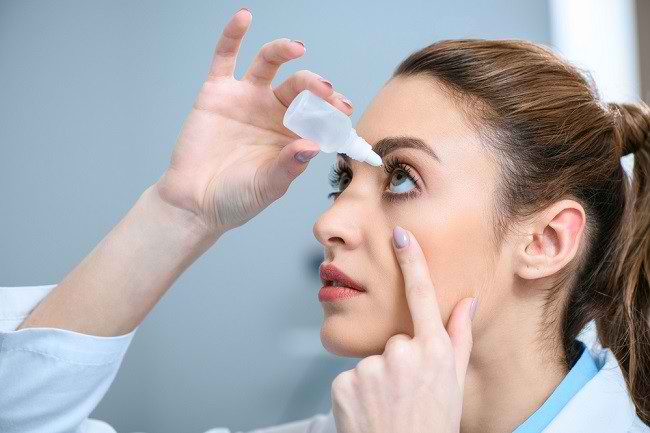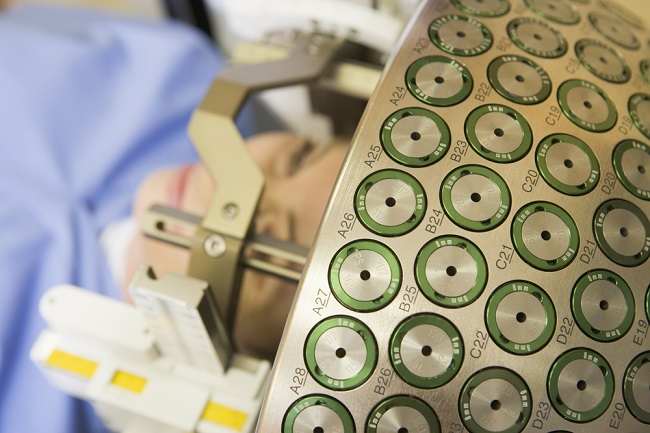An ophthalmologist who specializes in refraction is an ophthalmologist who specializes in treating refractive errors of the eye, which is a condition when a person is unable to see an object clearly. In this case, a refractive ophthalmologist has the ability to diagnose and determine the appropriate treatment.
The process of seeing begins when the reflection of light from an object is caught by the eye. Furthermore, the cornea and lens of the eye will refract the reflected light right into the retina so that objects can be seen clearly.

If the reflected light from an object is not focused on the retina of the eye, the view will become less clear or appear blurry. This is known as an eye refractive error. This eye disorder can be treated by a refractive ophthalmologist.
Refractive Eye Disorders Treated by a Refractive Ophthalmologist
Refractive errors are one of the most common vision problems. The following are some refractive errors of the eye that can be treated by a refractive ophthalmologist:
1. Myopia
Myopia or nearsightedness is an eye refraction disorder that makes it difficult for a person to see objects from a distance clearly, but is able to see objects that are close up well. This eye refraction disorder occurs when the eye is not able to focus light directly on the retina, but on the front of the retina.
2. Hypermetropia
Hyperopia or farsightedness is the opposite of myopia. This eye refraction disorder makes the sufferer able to see objects that are far away well, but difficult to see objects that are close to the eye. This refractive error occurs when light from an object is focused behind the retina.
3. Astigmatism
Astigmatism or cylindrical eye is a visual disturbance caused by abnormalities in the curvature of the cornea or eye lens. This condition makes the view look blurry, both from near and far. Astigmatism can occur at the same time as nearsightedness or farsightedness.
4. Presbyopia
Presbyopia or old eyes is an eye refraction disorder that occurs due to age. This condition occurs when the muscles around the lens and cornea of the eye stiffen and harden, making it unable to focus the light that is caught by the eye properly.
Presbyopia occurs gradually and is generally experienced by someone over the age of 40.
In addition to treating refractive errors, refractive ophthalmologists can also treat other eye diseases, such as red eye, dry eye, lazy eye, cataract, and glaucoma.
Actions a Refractive Ophthalmologist Can Take
Refractive ophthalmologists can perform tests to diagnose refractive errors or other eye disorders. The examination can be in the form of a physical examination of the eye and a visual acuity test with the following techniques:
Snellen chart
This examination is carried out using images that show rows of letters and numbers of varying sizes. The doctor will ask you to use a device called a refractor and sit 6 meters away from the image.
Next, the doctor will give you instructions to name the letters and numbers, from the largest to the smallest. The answers you give will be a guide for the doctor to replace and determine the right lens, so you can see letters and numbers more clearly.
These lenses will later become a benchmark in the manufacture of glasses or contact lenses that you will use.
Autorefraction
Refractive errors can also be checked using a machine or device called an autorefractor. In this examination, you will be asked to sit in front of a machine and look at the focal point on the monitor screen.
This method uses a beam of light and a computer to measure how light refracts through the eye. Most ophthalmologists use autorefractors as an initial examination to then compare the results of the examination Snellen chart or retinoscopy.
Retinoscopy
Retinoscopy is the primary method used by ophthalmologists to check for abnormalities and determine which eyeglass lenses to use. Using retinoscopy, an ophthalmologist can diagnose refractive errors of the eye, such as farsightedness and farsightedness, and determine their severity.
After the type of eye refractive error you experience is known, the refractive ophthalmologist will treat the condition in several ways, namely:
- Prescribing glasses or contact lenses to improve the quality of vision of people with farsightedness or farsightedness
- Performing LASIK surgery to improve the shape of the eye's cornea, so that the patient's eye can focus light on the retina correctly
The Right Time to See a Refractive Ophthalmologist
You are advised to consult a refractive ophthalmologist if you experience the following symptoms:
- Blurred or double vision
- Eyes often feel tired or sore
- Difficulty focusing when reading or looking at the computer
- Often feel dizzy
- Glasses no longer feel comfortable to use
- Family history of refractive errors
- 40 years or older
In addition, you are also advised to see an ophthalmologist who specializes in refraction if you plan to do LASIK to permanently improve your vision.
Preparation Before Meeting the DoctorRefractive Eyes
Before meeting a refractive ophthalmologist, you should prepare several things to make it easier for the doctor to determine the right diagnosis and treatment, such as:
- A detailed history of complaints and symptoms, for example, since when did you feel the complaint and did it get worse over time?
- Assistive devices, such as glasses or contact lenses being used, if available
- History of previous eye disease along with the treatment that has been done
- Referral letter from general practitioner or ophthalmologist, if any
- Your health insurance information
The refractive error of the eye cannot be completely cured. However, with the use of assistive devices such as glasses or contact lenses to LASIK surgery, a refractive ophthalmologist can make efforts to keep your vision quality good and prevent it from getting worse.
If you experience symptoms of refractive errors, such as nearsightedness, farsightedness, or cylinder eyes, you should consult an ophthalmologist who specializes in refraction. If you are still in doubt, you can ask for advice and recommendations from an ophthalmologist to find a refractive ophthalmologist that suits your condition.









